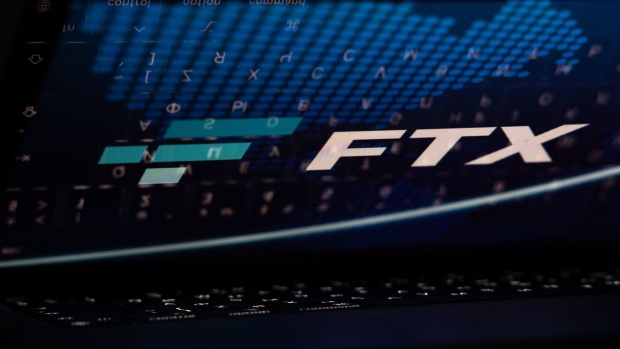Feb 8, 2023
FTX, Celsius Bankruptcies With Billions on Line Push Judges Into Legal Void
, Bloomberg News

(Bloomberg) -- As the cryptocurrency mania raged, Congress took a hands-off approach, keeping the fast-growing industry in legal limbo as it spawned startups and drew billions of dollars from investors.
That’s left it to the courts to deal with the wreckage.
The bankruptcies of FTX Group, Celsius Network and Genesis Global are promising to turn judges into after-the-fact rulemakers for an anarchic industry whose pioneers saw it as a way to keep money beyond government reach.
With little guidance to go on, the judges will need to decide fundamental questions with high stakes for creditors who bankrolled the companies and the customers who trusted them with their funds. Among them: Is a token more like money or a security like a stock or a bond? What’s owed to those who deposited cryptocurrencies on platforms that are now broke? Who has the right to be repaid first? And how does the court even properly value debts denominated in tokens — just privately concocted bits of digital code — instead of the US dollar? None of that is clear.
“Bankruptcy courts are doing things that the normal regulatory system is not able to provide, like guidance,” said Yesha Yadav, a law professor at Vanderbilt Law School and former World Bank lawyer who specialized in financial regulation and insolvency. “It’s essentially becoming like a proxy regulator.”
The precedents that emerge from the bankruptcies will have the ability to shape an industry that for years avoided direct oversight as Congress failed to enact legislation to put it under the sway of Washington regulators.
In the absence of a cryto-specific law, the Securities and Exchange Commission and the Commodity Futures Trading Commission have been left to decide for themselves how to use their current powers over the securities and derivative industries to crack down on alleged wrongdoing in cryptocurrencies. But the bankruptcy decisions have the potential to affect the business more quickly because regulators typically have to ask a court to enforce their rulings.
The cases are still in the early stages and it will likely take months before the crucial questions are settled. Celsius, a cryptocurrency lender that offered high interest rates to depositors, filed for bankruptcy in July. FTX, the exchange founded by Sam Bankman-Fried, did so in November. Genesis, once one of the biggest crypto lenders, filed just last month.
Yet some of the proceedings are already pointing to some potential precedents.
On Jan. 4, U.S. Bankruptcy Judge Martin Glenn made a key distinction in the case of Celsius, which unraveled after customers starting pulling out deposits due to worries about its solvency.
With no regulatory guidance to lean on, Glenn relied instead on the fine print buried in Celsius’s terms-of-use disclosure. The conclusion: some 600,000 Celsius users no longer had ownership rights of the digital assets they put into their accounts, no matter what they may have thought. In other words, they’re just like other creditors — and almost certain to face a steep loss.
Under a potential plan floated by Celsius, the company would emerge from bankruptcy as a new publicly traded entity and use a newly invented token to help repay what creditors are owed. An attorney for the company said that would give them a better recovery than generating cash by selling the company’s hard-to-liquidate assets — whose prices would likely tumble if they were dumped on the market.
The ownership question looms even larger in the FTX bankruptcy being overseen by a judge in Delaware. In that case, there are millions of customers who will be affected, making any fight over customer deposits even more contentious. It could also sow further confusion if the judge’s decision is at odds with how the accounts will be handled in the Celsius case.
One group of customers has already filed a preemptive lawsuit asking US Bankruptcy Judge John Dorsey to rule that any assets on FTX ledgers belong to them, not the company. Customers were told in the FTX service agreement that they would retain ownership of the assets, the group said in a court filing.
Yet FTX can still argue that because all of the assets were co-mingled just like a bank, the company actually owns them and is obligated to use them to repay all creditors. And there simply isn’t enough money left in FTX to give every customer back what they put on the platform, FTX has said.
Federal judges are also overseeing lawsuits outside of bankruptcy that could set legal precedents for how crypto assets are treated, but most of those decisions are at least several months away. Bankruptcy cases typically move quicker than other federal court disputes because of the pressure to get money to creditors as fast as possible.
So unless Congress changes the law, the court rulings will clarify the nature of what cryptocurrencies are and how investors should expect to be treated if another brokerage or lender goes bust.
“There is no question in my mind that the bankruptcy courts will get to the goalposts way before the regulators,” Deirdre O’Connor, Managing Director of Epiq Global, which provides bankruptcy services to corporations.
©2023 Bloomberg L.P.





